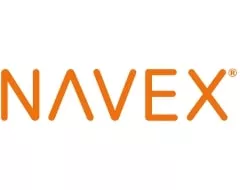This week the Financial Times posted an article which speaks right to the core of WhistleB's philosophy: whistleblower anonymity is critical for people to dare to tell the truth to those in power.
Why is whistleblower anonymity needed when attitudes to whistleblowers are becoming more positive? It's true that the stage is being set for whistleblowing. There is a shift towards greater transparency and openness. New regulations are being passed to protect whistleblowers. There are cases of bosses being punished for trying to reveal whistleblower identities. Some whistleblowers that were willing to forego their whistleblower anonymity have even gained almost hero-like status in the media.
Why we advocate for whistleblower anonymity
And yet people are still reluctant to blow the whistle. The FT article refers to a European Commission survey that found that only one out of four witnesses to corruption reported it. 75% of us remain silent. The main reason? Fear of retaliation. The authors also point to the US example where the government introduced rewards for whistleblowers after the financial crisis – to some success. But the reward system is not an option being considered in most other countries, which leaves us with whistleblower anonymity.
Think about it for a moment...
Even if you could receive a reward, would you risk personal damage such as a ruined career, negative reaction from others, family problems or a lifetime of being identified as "the whistleblower"? And even if laws say that your identity must remain confidential, might you feel slightly more secure if you didn't have to give up your identity in the first place, if you had the right to full whistleblower anonymity?
The value of whistleblower anonymity for organisations
But whistleblower anonymity is not just about the individual thinking about blowing the whistle. Looking at it from the organisational perspective, the kind of information that can be unearthed by a whistleblower may otherwise be almost impossible for leaders to access. Allowing whistleblower anonymity, and indeed anonymity all the way through any follow-up and investigation, increases the likelihood that such information will be forthcoming. In turn, this enables leaders to put a stop to the related misconduct sooner and thereby reduce potential losses.
"The compliance officer of one of our Nordic customers with operations in the US has often said that they would never get the kind of reports that they have received through their whistleblowing system if it did not enable whistleblower anonymity." Karin Henriksson, Co-Founder, WhistleB.
Further, the new EU laws will soon protect whistleblowers even if they choose to report externally to relevant authorities or the media. Our advice, as always, is therefore for organisations to do everything they can to encourage internal reporting. It is far better for leaders to be notified about misconduct through internal whistblower channels so that they have the chance to put things right and prevent reputational damage. Once again, whistleblower anonymity is central here as it helps to increase confidence in the whistleblowing system and process.
How can organisations ensure whistleblower anonymity?
As a third-party whistleblower service provider, we have an important role in enabling our customers to benefit from whistleblower anonymity. In our 2019 Customer Study on organisational whistleblowing, responses showed that approximately half of all messages received by our customers led to a dialogue with the anonymous whistleblower.
So, what is needed for a whistleblower system to guarantee whistleblower anonymity?
- An external whistleblowing solution that is separate from an organisation's own IT environment is an efficient way of ensuring whistleblower anonymity.
- The system needs to be based on a technical solution that makes it impossible to trace the identity of an anonymous whistleblower. This involves technological features such as meta-data cleansing.
- The system should include a communication channel that enables a follow-up dialogue while maintaining whistleblower anonymity. This allows the whistleblower team to build trust with the whistleblower so that they can use the anonymous tips more effectively or ask for essential follow-up data.
Whatever way we look at things, whistleblower anonymity remains at the heart of effective organisational whistleblowing. According to our customers anonymous reporting is fundamental to overcome peoples´ fear, and to encourage them to do what they know is the right thing and blow the whistle.
The content of this article is intended to provide a general guide to the subject matter. Specialist advice should be sought about your specific circumstances.

